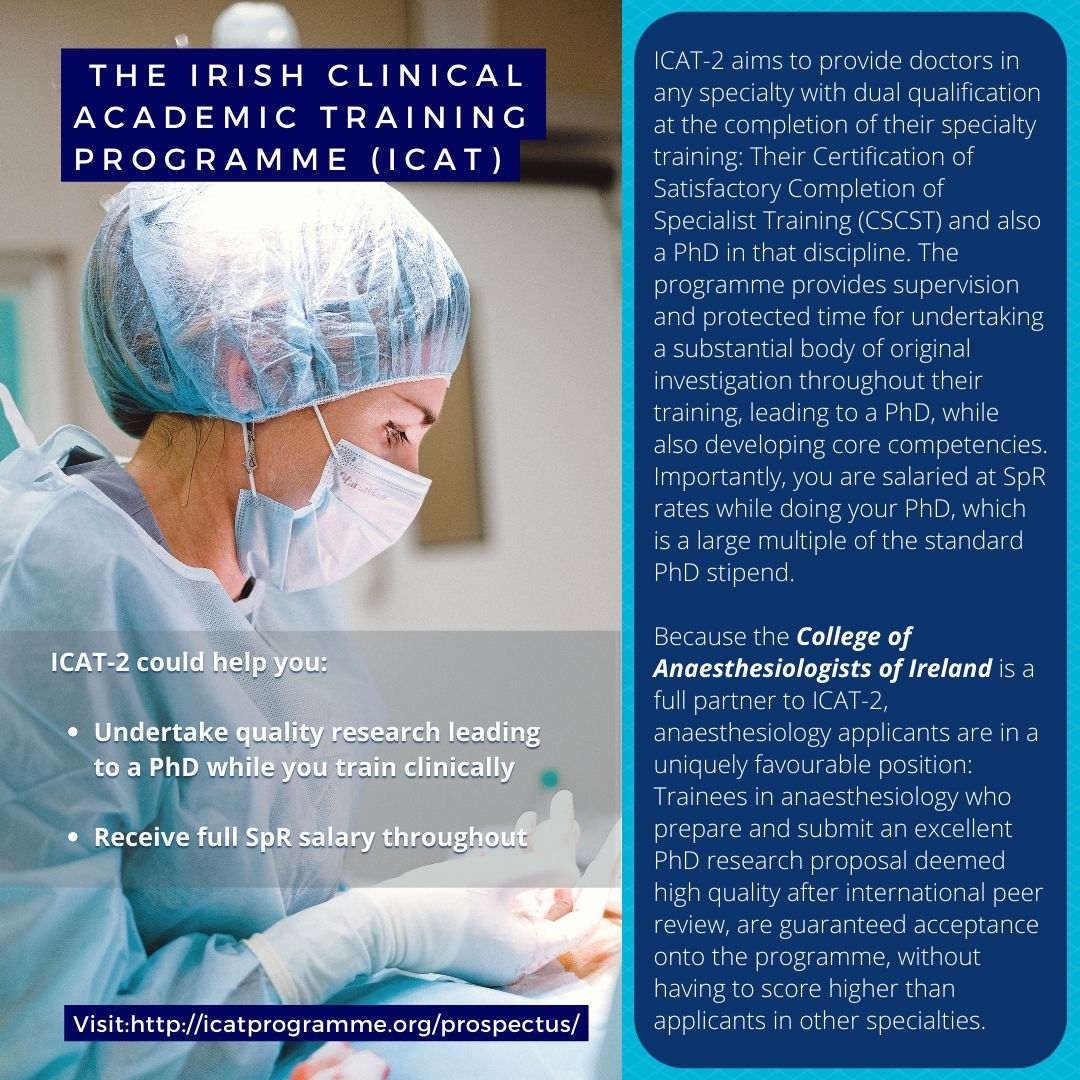The Irish Clinical Academic Training Programme (ICAT)

The ICAT-2 Programme is an all-Ireland partnership comprising six universities (National University of Ireland Galway, Trinity College Dublin, University College Dublin, Queen’s University Belfast, RCSI University of Medicine and University College Cork), the Health Research Board (HRB), the clinical training authorities North and South, Health Service Executive – National Doctors Training and Planning (HSE-NDTP) in the Republic of Ireland (ROI), Northern Ireland (NI) Health and the College of Anaesthesiologists of Ireland (CAI).
It aims to provide doctors in any specialty with dual qualification at the completion of their specialty training: Their Certification of Satisfactory Completion of Specialist Training (CSCST) and also a PhD in that discipline. The programme provides supervision and protected time for undertaking a substantial body of original investigation throughout their training, leading to a PhD, while also developing core competencies. Importantly, you are salaried at SpR rates while doing your PhD, which is a large multiple of the standard PhD stipend.
Because the College of Anaesthesiologists of Ireland is a full partner to ICAT-2, anaesthesiology applicants are in a uniquely favourable position: Trainees in anaesthesiology who prepare and submit an excellent PhD research proposal deemed high quality after international peer review, are guaranteed acceptance onto the programme, without having to score higher than applicants in other specialties.
Visit: http://icatprogramme.org/prospectus/